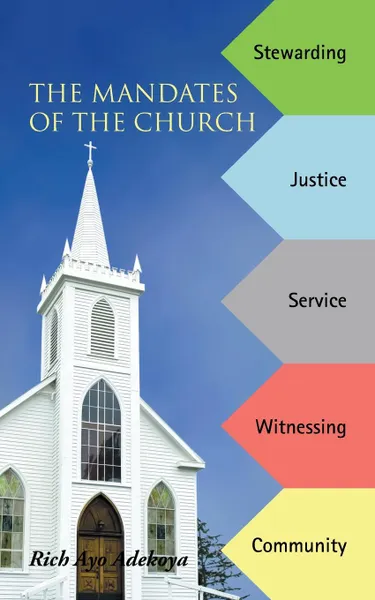The Mandates of the Church 12+
📒 In this thought-provoking and momentous book, the author poses the questions, what is the role of the church in our society and should there be any relationship between the state and the church for the development of the society and what could be the effect of such collaboration if there is any? In asking on what bases is the church getting involved with the society, he explores both the Biblical foundations and three major theories that have emerged about societies and social behaviour. Particular attention is paid to the relationship between religion and social change to the case of the church in Lagos, Nigeria as an agent of social and political change in society. Using a thematic structure, Richard Adekoya illustrates different roles the church can play in society, especially in a democratic milieu, for example humanity services, educational development, spiritual and moral development and social and ethical development. He examines the various contributions of the churches in Nigeria right from the missionaries' era to the contemporary dispensation. The book basically proved that the church mandate is not limited to its evangelical obligations. Its involvement in many aspects of people's lives in society, particularly the social and political aspects, is part of its cultural mandate. This is a challenging book, rich in example and wide-ranging in scope: key ideas that so often appear impossible for the church to practice - employment generation, political leaders...
Мнения
